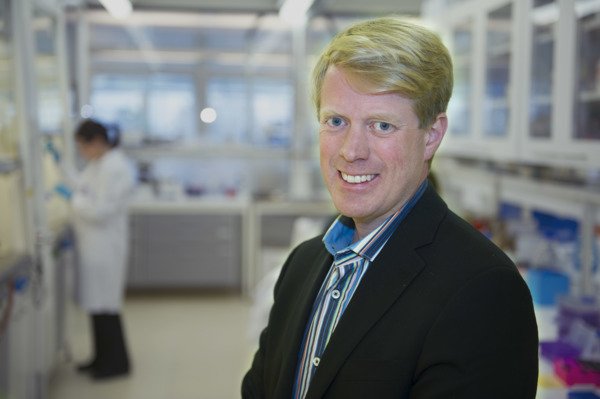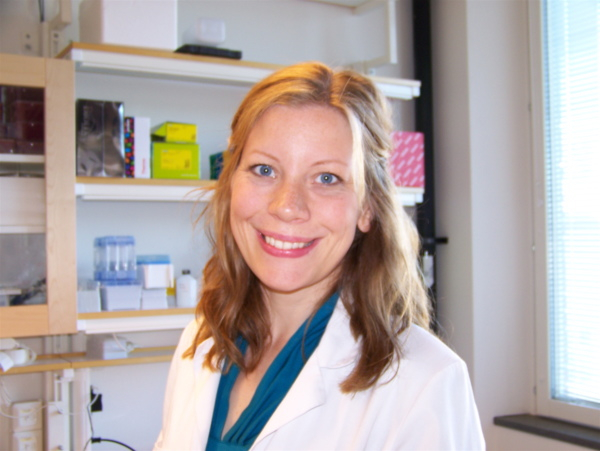Discovery of a new mechanism for cancer cells to repair their DNA and development of a novel anti-cancer drug

Radiotherapy is one of the most common cancer treatments. A research team led by scientists at the Karolinska Institutet has discovered a new way to make cancer cells sensitive to radiotherapy. In the study the researchers have identified a new way to block cancer cells' ability to repair their DNA and thus stop the survival of cancer cells. The researchers hope that the discovery can underpin new ways of treating cancer in the future. The findings were published in the journal Nature Communications.
Radiotherapy damages the DNA which causes cancer cells to stop growing and die if the damage is left unrepaired. Unfortunately, some cancers are resistant to radiotherapy and the treatment also damages the DNA in healthy cells, which limits the amount of radiation that can be used with respect to normal tissue damage. In order to find new ways to specifically make cancer cells more sensitive to radiotherapy, researchers at the Karolinska Institutet in collaboration with Kancera AB, have discovered a new way cancer cells use to repair DNA damage.
In the current study, the researchers discovered that cancer cells use, in this context, a hitherto unknown protein to repair the DNA damage that occurs in radiation therapy. For the first time, it could be seen that the protein locates to sites of DNA damage in the cell nucleus where the protein regulates the cancer cell's ability to repair its DNA and thus survive.
In collaboration between the research groups at Karolinska Institutet and Kancera AB, the scientists developed a new drug which blocks the protein and its ability to repair DNA damage. They demonstrated that cancer cells treated with the drug do not survive upon radiotherapy in laboratory experiments.

"It is known that the levels of PFKFB3 is much higher in cancer cells than in healthy cells. However, to identify that PFKFB3 regulates DNA repair upon radiotherapy is groundbreaking and very exciting." says Nina Gustafsson, Assistant Professor and Team Leader in Translational Medicine at the Department of Oncology-Pathology, Karolinska Institute, who led the study together with Professor Thomas Helleday at the same institution.
Since normal, healthy cells are not dependent on PFKFB3 for proper DNA repair, it is possible that combination therapy with radiation or chemotherapy will be well tolerated with few side effects. The goal is now to further develop the drug and lay the foundation for a new cancer treatment with less side effects than the treatments currently available.
The study was led by researchers at Karolinska Institutet, operating at SciLifeLab, and Kancera AB, and in collaboration with researchers from Stockholm University, University of Sheffield, Sprint Bioscience, Roma Tre University, Emory University School of Medicine and more. The research has been funded by the Swedish Society for Medical Research, the European Union's Horizon 2020 research and innovation program under the Marie Sklodowska-Curie grant agreement No. 72272, together with Torsten Söderberg and Ragnar Söderberg Foundation and more.
Publication
Targeting PFKFB3 radiosensitizes cancer cells and suppresses homologous recombination
Gustafsson NMS, Färnegårdh K, Bonagas N, Huguet Ninou A, Groth P, Wiita E, Jönsson M, Hallberg K, Lehto J, Pennisi R, Martinsson J, Norström C, Hollers J, Schultz J, Andersson M, Markova N, Marttila P, Kim B, Norin M, Olin T, Helleday T
Nature Communications online 24th of September doi: 10.1038/s41467-018-06287
